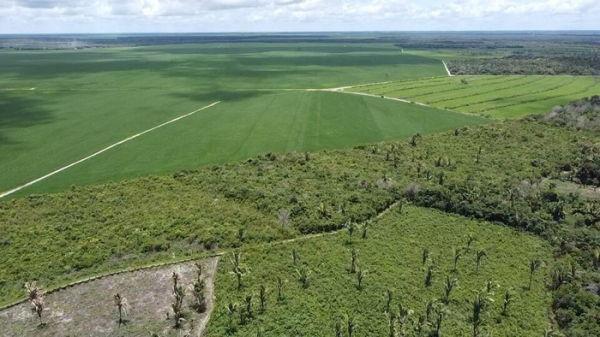Developing countries around the globe face a challenge that pits economic growth against environmental protection. As they expand their agricultural production, they often convert forest into cropland and pasture. But the large-scale removal of trees weakens the world’s ability to prevent further climate deterioration and biodiversity loss.
Brazil presents a key example. The country is home to the world’s largest area of rainforest — some 1.2 million square miles, an area more than 16 times the size of Nebraska. The Amazon contains large tracts of rainforests that, when converted to agriculture, release a huge amount of carbon dioxide into the atmosphere, exacerbating climate change.
Increasing agricultural production is a national priority for Brazil, the world’s largest soybean exporter. Since the 1990s, agricultural encroachment has eroded major areas of the country’s rainforest. During 2015-19, the Amazon basin accounted for a third of the land converted for Brazilian soybean expansion.
Read More: University of Nebraska-Lincoln
This aerial photo shows where environmentally fragile savannah has been converted to farm land in the Cerrado region of Brazil. (Photo Credit: Alencar Zanon/University Federal of Santa Maria)


